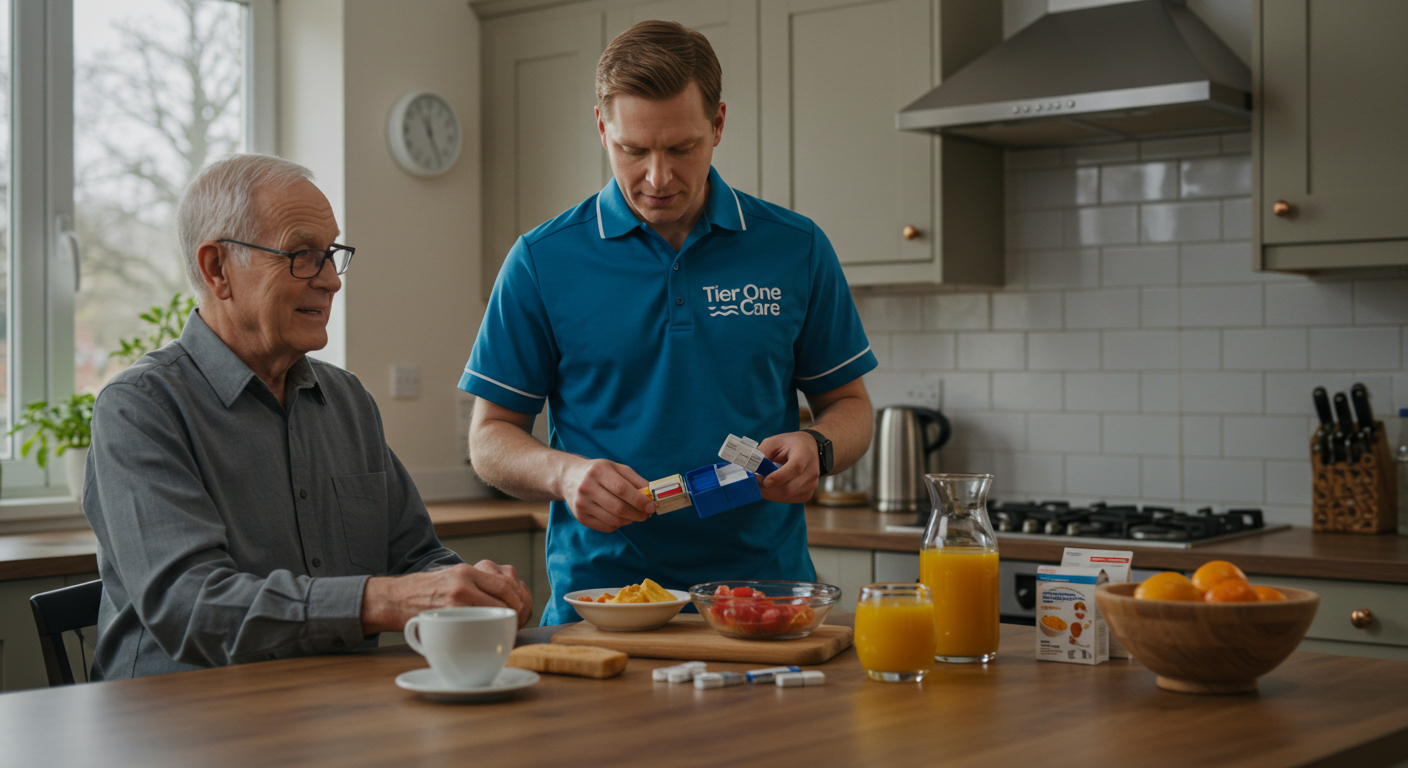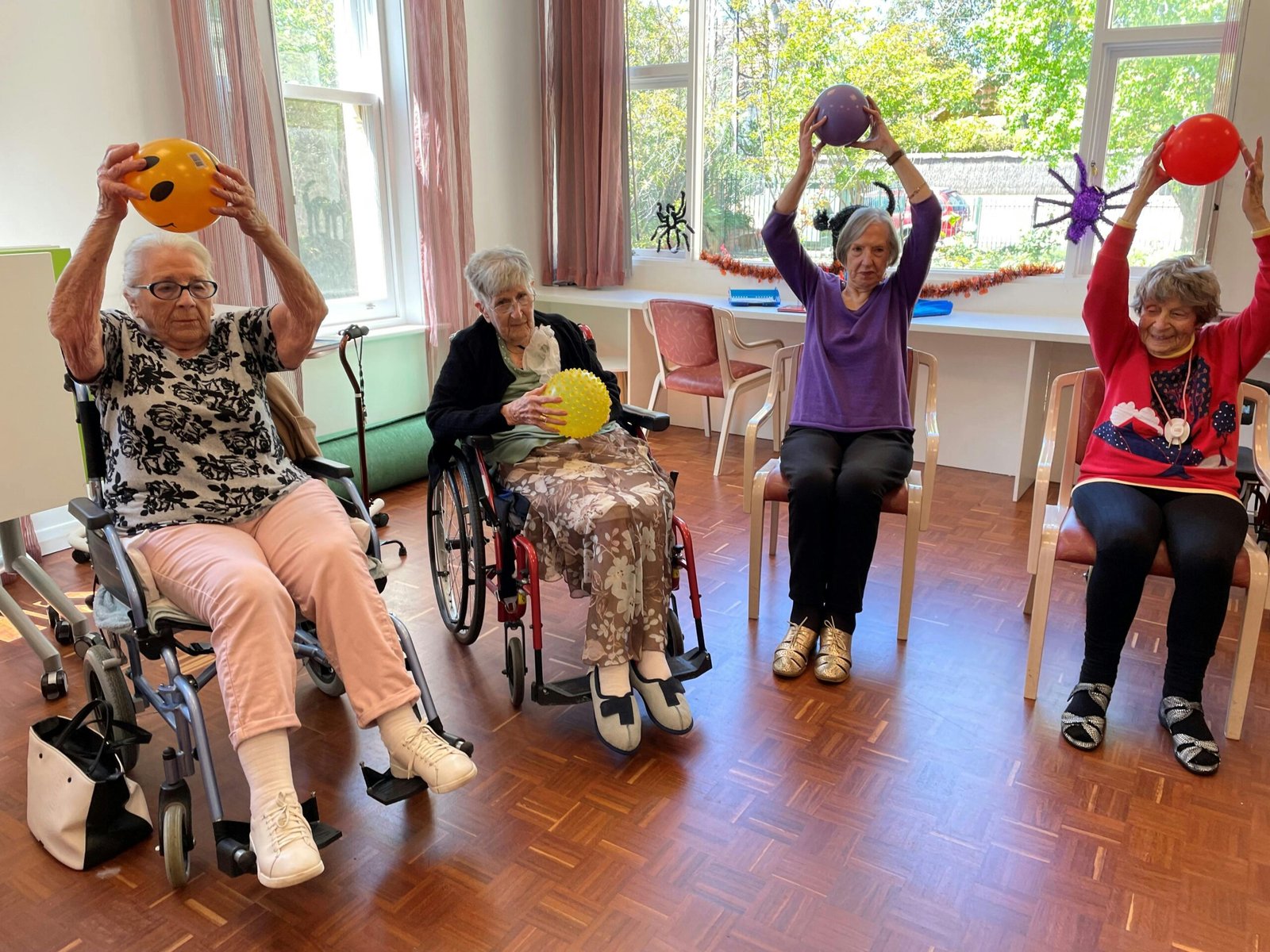For Personalized Live in Care Guidance
What Is A Home Carer? Essential Support for Independent Living
A home carer is a dedicated professional who provides personalized care and support to individuals in their own homes, enabling them to maintain independence and dignity while receiving the assistance they need. Whether supporting elderly individuals, people with disabilities, or those recovering from illness or injury, home carers deliver compassionate, person-centered care tailored to each client’s unique needs and preferences.
The Vital Role of Home Carers

Home carers serve as a lifeline for many individuals who wish to remain in familiar surroundings rather than moving to residential care facilities. Their comprehensive support encompasses multiple aspects of daily living:
Personal Care Assistance
One of the primary responsibilities of a home carer is providing assistance with personal care tasks that may have become challenging for the individual. This includes:
- Bathing and showering support
- Assistance with dressing and grooming
- Toileting and continence care
- Oral hygiene maintenance
- Hair care and styling
These intimate care tasks are performed with dignity and respect, preserving the individual’s sense of self-worth and independence.
Health and Medication Support
Home carers play a crucial role in maintaining their clients’ health by:
- Providing medication reminders and administration assistance
- Monitoring health conditions and reporting changes
- Assisting with prescribed exercises and mobility routines
- Supporting attendance at medical appointments
- Liaising with healthcare professionals when needed
This health support helps prevent complications and ensures medical regimens are followed correctly.
Nutritional Support
Proper nutrition is fundamental to overall health and wellbeing. Home carers contribute by:
- Planning and preparing nutritious meals aligned with dietary requirements
- Assisting with eating and drinking when needed
- Ensuring adequate hydration throughout the day
- Shopping for groceries and pantry management
- Accommodating food preferences while maintaining nutritional balance
This nutritional support helps maintain strength, immune function, and overall health.
Household Management
Maintaining a clean, safe living environment is another important aspect of home care:
- Light housekeeping duties such as dusting, vacuuming, and tidying
- Laundry and ironing services
- Bed making and linen changing
- Basic home organization
- Ensuring safety hazards are identified and addressed
These services help create a comfortable, hygienic living environment conducive to wellbeing.
Emotional Support and Companionship
Beyond practical assistance, home carers provide invaluable emotional support:
- Engaging in meaningful conversation and active listening
- Participating in hobbies and interests
- Providing reassurance and encouragement
- Celebrating achievements and special occasions
- Simply being present and attentive
This companionship aspect of care helps combat loneliness and promotes positive mental health.
Types of Home Care Services

Home care services can be tailored to meet varying levels of need:
Hourly Visiting Care
This flexible option involves a carer visiting at scheduled times to provide specific support. Visits can range from 30 minutes to several hours and may occur multiple times daily or weekly depending on requirements. This type of care works well for individuals who need assistance with particular tasks but remain largely independent.
Live-in Care
For those requiring more comprehensive support, live-in carers reside in the client’s home, providing round-the-clock assistance. This arrangement offers the security of constant support while allowing individuals to remain in their own homes rather than relocating to residential facilities.
Overnight Care
Some individuals require supervision or assistance specifically during nighttime hours. Overnight carers provide peace of mind for both clients and their families, ensuring help is available during vulnerable periods.
Specialized Care Services
Many home carers receive additional training to support individuals with specific conditions:
- Dementia and Alzheimer’s care
- Parkinson’s disease support
- Stroke recovery assistance
- End-of-life and palliative care
- Learning disability support
This specialized care addresses the unique challenges associated with different health conditions.
Qualities of an Outstanding Home Carer
The most effective home carers possess certain essential qualities:
Compassion and Empathy
The ability to genuinely care about others’ wellbeing and understand their emotional and physical challenges is fundamental to providing supportive, dignified assistance.
Patience and Adaptability
Care needs can fluctuate day to day, requiring carers to remain flexible, calm, and patient when facing challenges or changes to established routines.
Reliability and Trustworthiness
Clients and their families place enormous trust in home carers, making dependability, honesty, and integrity non-negotiable qualities.
Strong Communication Skills
Clear communication with clients, family members, and healthcare professionals ensures coordinated, consistent support and helps build strong relationships.
Attention to Detail
Observing subtle changes in a client’s condition, remembering preferences, and following care plans precisely all require exceptional attention to detail.
Benefits of Choosing Home Care
Home care offers numerous advantages over residential care options:
Maintaining Independence and Control
Receiving support at home allows individuals to maintain control over their daily routines, environment, and lifestyle choices. This sense of autonomy contributes significantly to overall wellbeing and quality of life.
Personalized One-to-One Support
Unlike care homes where staff support multiple residents, home care provides dedicated one-to-one attention from consistent carers who become familiar with the individual’s specific needs and preferences.
Comfort of Familiar Surroundings
Remaining in a familiar environment can significantly benefit wellbeing, particularly for those with cognitive conditions like dementia. Familiar objects, routines, and settings provide security and comfort.
Flexibility and Adaptability
Home care services can evolve as needs change, with support increasing or decreasing accordingly. This flexibility ensures individuals receive exactly the level of care they need at any given time.
Family Involvement
Home care allows family members to remain closely involved in their loved one’s care while receiving professional support. This collaborative approach often results in more holistic, effective care.
Cost-Effective Solution
In many cases, home care can be more affordable than residential care, particularly when needs are moderate or when care is shared between family and professional carers.
Finding the Right Home Care Provider
When seeking home care services, consider these important factors

Comprehensive Assessment Process
Quality providers conduct thorough initial assessments to understand specific needs, preferences, and goals before developing personalized care plans.
Carer Selection and Matching
The relationship between carer and client is crucial to successful home care. Look for providers who carefully match carers based on both care needs and personality compatibility.




Training and Qualifications
Ensure carers receive comprehensive training, including condition-specific knowledge when relevant. Qualifications and ongoing professional development indicate a commitment to quality care.
Supervision and Quality Assurance
Regular supervision, spot checks, and formal reviews help maintain high standards and ensure care remains appropriate as needs evolve.
Transparent Pricing
Choose providers who offer clear, transparent pricing without hidden costs or unexpected charges.
Hear What Our Clients Says
Frequently Asked Questions
What is the main role of a home carer?
Home carers support individuals who face health or age-related challenges, helping them stay independent and safe in the comfort of their own homes.
How does Tier One Care personalize its home care services?
We follow a person-centered approach, meaning every care plan is tailored to the specific needs, preferences, and routines of the individual receiving support.
What types of home care services does Tier One Care offer?
We provide a wide range of services—from occasional short visits for help with daily tasks to full-time live-in care, depending on what suits you best.
Are Tier One Care’s services affordable?
Yes! We offer a “We Won’t Be Beaten on Price” guarantee, ensuring top-quality care remains accessible and budget-friendly for everyone.
Who provides the care at Tier One Care?
Our team consists of compassionate, professionally trained carers who are dedicated to improving quality of life while promoting independence.
How can I get started with Tier One Care services?
You can contact us directly to discuss your needs. Our team will guide you through the available options and help design a care plan that works for you.

Contact Us
Phone: 08085013866
Email: support@tieronecare.co.uk
Head office
182-184 High Street North
East Ham
London
E6 2JA
Information
About Us
Careers
Blog
Legal
Privacy Policy
Cookie Policy
Terms & Condition




